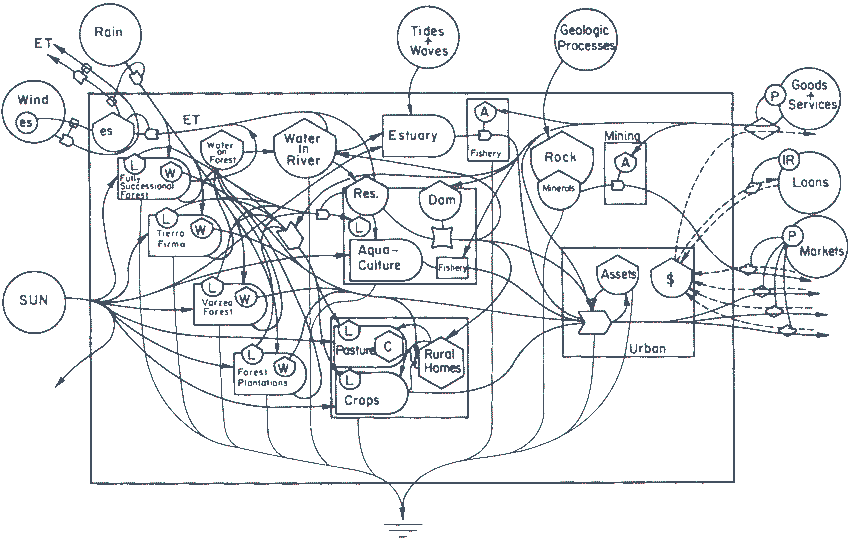Ecological Economies (EE) is a transdisciplinary academic field re-thinking economics within the limits of planetary growth. Founded in the 1980s, it examines how the economy is embedded in ecological systems supporting human activities. Keeping the focus on human livelihoods, the researchers aim to find sustainable systems serving human well-being in the face of environmental depletion. Fair distribution, efficient allocation, and sustainable scale of production form ecological economies three main goals.
Whilst keeping up a distinction between human and non-humans, EE criticizes neoliberal economics for describing non-human planetary entities as “externalities” to the economy. Rather, EE proposes to internalize social and environmental “externalities” and aim for more collaborative economies. Moreover, it holds the stance that physical capital (means to produce goods & services) cannot replace natural capital.* Put more simply, labour and technology cannot make up for environmental degradation, a stance that places EE in the spectrum of “strong sustainability” in economic theory.
And how does this translate to modeling?

*Robert Costanza, "What is Ecological Economics?" Yale Insights, May 11, 2010, https://insights.som.yale.edu/insights/what-is-ecological-economics.
💧Ecological Urgency
💧Ecological-economic Modeling
💧Diverse Economies